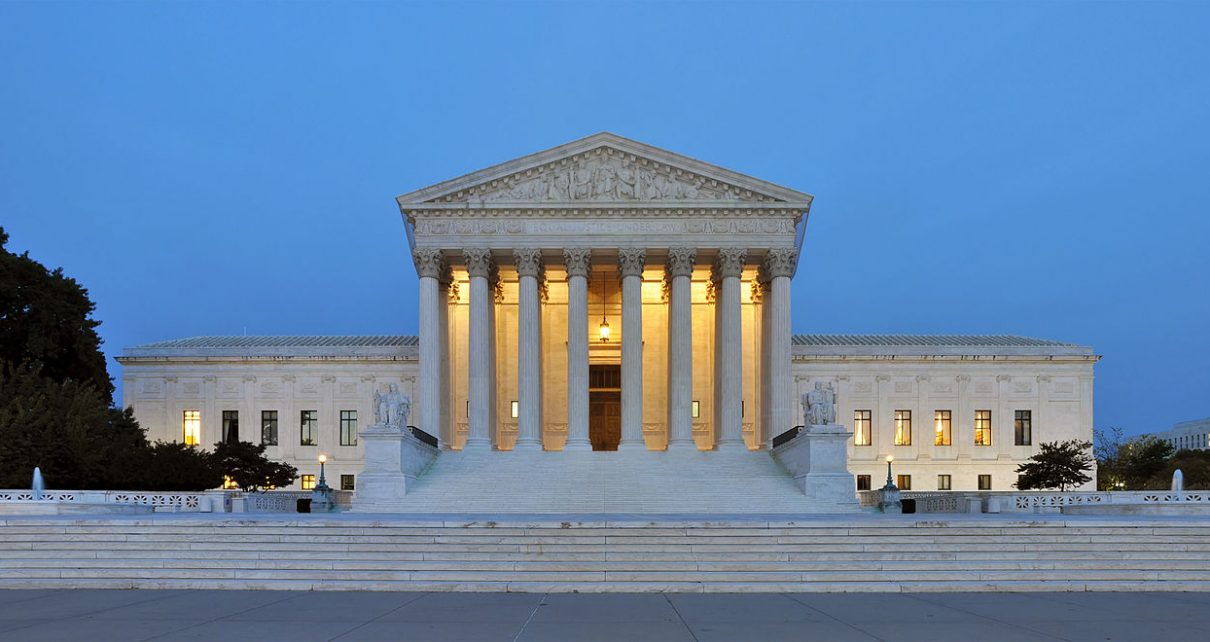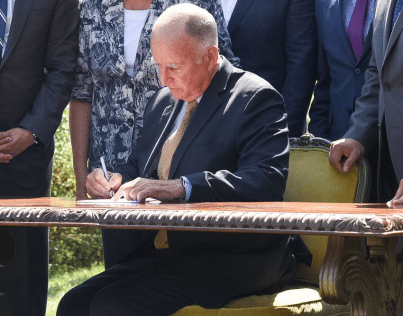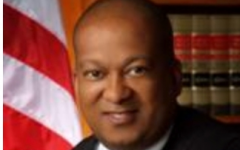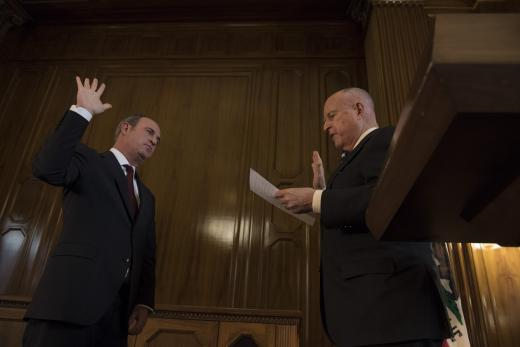
Supreme Court of the United States. (Photo: U.S. Supreme Court)
U.S. Supreme Court Declines to Hear California Transgender Rights Case
Sacramento’s Mercy San Juan Medical Center refused procedure that violated hospital’s ethical and religious obligations
By Katy Grimes, November 8, 2021 7:21 am
The United States Supreme Court declined to hear a case from a California transgender man seeking to have a hysterectomy at Sacramento’s Mercy San Juan Medical Center.
Mercy San Juan Medical Center declined to allow the procedure to be performed saying it was an “elective sterilization,” and violated the hospital’s ethical and religious obligations, the Associated Press reported.
The case was litigated over “transgender rights.” With the Supreme Court declining to hear the case, it leaves in place the lower court decision against Mercy hospital.
The high court turned away the case Monday without comment, as often happens. However, three of the conservative justices — Clarence Thomas, Samuel Alito, and Neil Gorsuch — said they would have heard the case, AP reported.
Evan Minton, 35, said that he started to transition in 2011 and five years later, his surgeon arranged a hysterectomy at Dignity’s Mercy San Juan Medical Center in the Sacramento suburb of Carmichael, the Daily Mail reported.
After being denied by Mercy, Minton got the surgery three days later at a different hospital. He sued under a California law that bars discrimination. A trial court agreed with the hospital that a three-day delay in the procedure did not involve a denial of “full and equal” access to health care under California law. An appeals court reversed that decision.
Minton’s hysterectomy was ruled as ‘medically necessary’ to treat gender dysphoria, which the American Psychiatric Association defines as ‘clinically significant distress’ due to a conflict between a person’s gender identity and sex assigned at birth.
Gender dysphoria was redefined in 2012 when the Diagnostic and Statistical Manual of Mental Disorders did away with labeling transgender people as “disordered,” and reclassified them with the new term, “Gender Dysphoria.”
The hospital routinely performs hysterectomies on non-transgender patients to treat other issues, such as chronic pelvic pain or uterine fibroids, according to the court case’s legal filings.
“Since Dignity Health turned me away for being transgender, I’ve had multiple medical emergencies and I can’t stand to go to my neighboring Dignity Hospital because of the discrimination I was put through,” Minton said in an ACLU release. “In one instance, I called my doctor and had them talk me through a procedure I performed on myself to avoid having to go into one of their hospitals,” the Daily Mail reported.
Minton also said that he hoped the hospital will soon be held accountable. ‘I hope Dignity Health will finally take responsibility for what they did to me and what they continue to do. I applaud transgender Californians and people across the country who are sharing their denial of care experiences,’ Minton said.
Dignity Health said it would continue litigating the case in lower courts, said Daily Mail. However it responded to the high court’s decision, saying that it “stands against discrimination of all kinds,” and regrets “that Mr. Minton’s hysterectomy was incorrectly scheduled at one of our facilities that does not provide the service he needed.”
- Energy Company Warns CARB on ‘The Stark Reality’ Driving In-State Refining Capacity to Zero of CA’s Remaining 7 Refineries - February 28, 2026
- CAL DOGE Investigation: $1 BILLION California Solar Program Instead Funded Democrat Voter Registration & Activism Efforts - February 27, 2026
- Could President Trump End the Income Tax? - February 26, 2026





I think many of us simply do not understand why the Supreme Court routinely refuses to hear cases that involve fundamental Constitutional issues such as this one.
The SCOTUS is extraordinarily selective in the kinds of cases they wanna hear. In fact, every year the Supreme Court receives more than 8,000 requests for review but hears only about 80 of them.
The most important criterion for Supreme Court review is a circuit split. That is, the Court primarily takes cases to resolve a conflict among the lower courts of appeals on an important question of federal law. While the Court may depart from that requirement in some death penalty cases or in matters of extraordinary national importance (like the contested presidential election in 2000), it is very rare.
The Supreme Court has become the Supine Court that only hears cases that their Democrat and NWO globalist masters want them to hear and then they rule the way they are told?
I would prefer to be treated in a hospital that upholds ethical standards, even if those standards don’t agree with the desires of one person. Minton had choices. I’d like my choices as well.